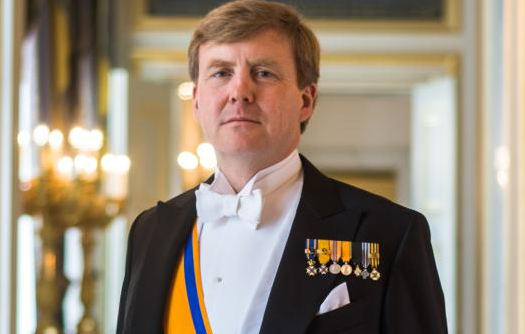‘Ban arrests of peaceful demonstrators’

 Lawyer Willem Jebbink represents Abulkasim al-Jaberi, the man who was arrested recently for shouting ‘Fuck the king’, thereby committing lese majesty, which is still a punishable offence in the Netherlands. Jebbink thinks his arrest flies in the face of civil liberty.
Lawyer Willem Jebbink represents Abulkasim al-Jaberi, the man who was arrested recently for shouting ‘Fuck the king’, thereby committing lese majesty, which is still a punishable offence in the Netherlands. Jebbink thinks his arrest flies in the face of civil liberty.
The prosecution of my client Abulkasim al-Jaberi for insulting the king and queen has generated much discussion about the archaic law that penalises lese majesty, and rightly so. We should ask ourselves if such a law is still relevant, especially since the criminal code already contains a ‘normal’ section on defamation.
Civil liberty
However, the most important argument in Mr al-Jaberi’s case concerns civil liberty. He demonstrated with the approval of the mayor, but was nevertheless incarcerated by the police who decided he committed the offence of lese majesty. His detention reflects the quality of the state of law in this country where freedom of demonstration is concerned, and we can’t but conclude that it is in a very poor state indeed.
What happened to Mr Al-Jaberi also happened to a woman named Joanna during the coronation celebrations. She had permission to make her anti-royalist feeling known on Dam square but when she did so peaceably, the police intervened all the same. In doing so, the police waived the authority of the only person who has a decisive say in these matters: the mayor.
This is cause for concern because it jeopardises the personal freedom of citizens. It also demonstrates that apparently police officers do not have sufficient knowledge of the law to act according to its edicts.
It looks as if the agenda of the police is one of ‘good riddance to bad rubbish’. And that seems to be enough to waive the right to freedom of demonstration. Those who want to express their opinions are arrested forthwith and silenced, even when the arrest turns out to have been wrongful. Police officials don’t care what the mayor says and consequently do whatever they think necessary to present a ‘clean’ Dam square to the eyes of the international press.
Sinterklaas
Something similar happened last year during the welcoming ceremony for Sinterklaas in Gouda.
The European court for human rights says authorities should be tolerant in the face of peaceful demonstrations, even when demonstrators don’t comply to the letter with the legal restrictions. The basis of this legislation is one of the pillars of a free, democratic society: citizens must be able to voice their opinions, especially if they do so in a peaceful manner.
That is exactly what dozens of demonstrators did in Gouda: voice a peaceful protest against the figure of Black Pete. When the police intervened, what came across was the image of a couple of people spoiling a children’s party. The result, once again, was the incarceration of citizens who wanted to have their say. Hours later, when the demonstrators were finally released, they had the pleasure of listening to their uninformed prime minister saying that he was firmly in the children’s party camp.
With one fell swoop ‘the prime minister of every Dutch citizen’ side-lined people who thought differently, among whom many with a different cultural background.
International attention
Meanwhile, thanks to the prosecution of Mr Al-Jaberi, the Black Pete discussion has been resuscitated in the international press: the liberal Dutch are applying the full force of the law against demonstrators who are peacefully objecting to the ridiculing of people of colour. A bad press abroad for the freedom of opinion in this country, this is the backlash of the ‘good riddance to bad rubbish’ policy of the police.
The Netherlands is not used to mainstream, ‘tough’ public debates. The culture of consensus rules. Talk shows feature opinion makers who form public opinion, not people who express awkward opinions. People who provoke are ‘trouble makers’ and run the risk of arrest at demonstrations.
A ban on arrests for alleged offences of expression and peaceful demonstrations might be a good way of reining in the police. Or to use the language of the demonstrators: fuck repression.
Willem Jebbink is a lawyer.
This column appeared earlier in the Volkskrant
Thank you for donating to DutchNews.nl.
We could not provide the Dutch News service, and keep it free of charge, without the generous support of our readers. Your donations allow us to report on issues you tell us matter, and provide you with a summary of the most important Dutch news each day.
Make a donation